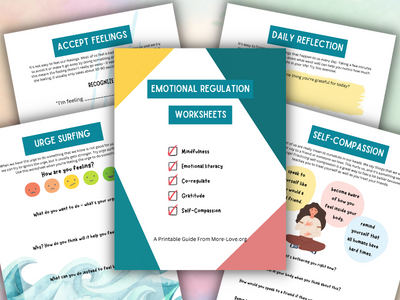
Many couples who have a child with an eating disorder say their marriage needs some degree of saving. It’s tough to parent in any conditions. But when a child has a serious problem, things get even harder. For example, married couples who experience the death of a child experience an 80% divorce rate. Similar studies put the divorce rate for parents who have children who have autism spectrum disorder as high as 80% higher than others.
It’s hard to figure out the exact risk to a marriage when you have a child with a serious problem. But we can probably all agree that major life events threaten our marriages. And when those life events involve children and complex family dynamics, they can be devastating. So if you feel like saving your marriage is yet another thing you need to do now that your child has an eating disorder, you’re not alone.
The pressure of supporting a child in recovery can put your marriage on the back burner. While this makes sense, it leaves your marriage vulnerable.
Emotional Regulation Worksheets
Give these printable worksheets to grow more confident, calm and resilient and feel better, fast!
- Self-Esteem
- Self-Regulation
- Mindfulness
- Calming strategies
Saving your marriage when your child has an eating disorder isn’t easy, but it’s important. Your child will feel better if you feel better. So while it may seem like there’s no space to worry about your own issues, a healthy marriage is a great investment in recovery.
The most common issues couples face when parenting a child who has an eating disorder are:
Lack of communication with each other
Parents today are juggling so many responsibilities. Most parents have two careers in the household, combined with regular home tasks, child care, and more. It takes work as a couple to maintain communication in the best of times. And when a child has an eating disorder, communication can take a backseat to everything else that’s going on.
It is important to keep communication lines open even as children undergo treatment for eating disorders. Couples need to find ways to connect at least once per day deeply and emotionally. And it’s important to connect over a variety of topics in addition to the eating disorder itself. Couples need to talk about how work is going, other children, and how to manage household tasks. This connection and conversation will help you maintain engagement with each other as a couple.
Many marriage counselors recommend that couples set up regular date nights to maintain the strength of the marriage. And this becomes even more important during eating disorder treatment. Stronger couples provide a more stable environment for children, which benefits treatment and recovery.
Disagreements about how to manage the child’s treatment
New research on eating disorder treatment is released regularly, and these evidence-based studies can support us in making decisions about how best to support children through eating disorder treatment. But there is not yet enough research to give definitive guidance about exactly what treatment will cure our children. Eating disorders are notoriously unique to each individual, and it’s impossible to find a single “magic bullet” when it comes to treatment plans.
As a couple, you must openly acknowledge the limitations of the research surrounding eating disorder recovery. Some parents will chase a definitive answer, questioning every action that falls outside of tight evidence-based guidelines. Others will seek a single authority – a therapist or treatment center – and follow their advice religiously.
Everyone takes a different approach to treatment. Couples need to talk to each other about their perspectives and reach an agreement about the best path. Keep in mind that there is rarely one way to do eating disorder treatment. The specific approach you choose is less important than the fact that you’re both wholeheartedly committed to it.
Unequal distribution of responsibility
In most marriages, division of labor is necessary to manage the daily requirements of family life. And in the majority of families, the mother takes the lion’s share of family responsibility. This is equally true when a child gets an eating disorder. Often it is the mother who shuttles the child to and from therapy sessions and manages the child’s eating plan at home and at school. In some cases, children may need to be removed from school and fed at home six times per day. It is usually the mother who quits work or reduces her work hours to accommodate this situation.
Inequality isn’t always bad. Sometimes, it reflects a beautiful balance between a couple and agreements about how life is best managed given our individual proclivities. The danger in these situations is not so much the inequality itself. Rather, it is the inability of the married couple to acknowledge their different roles and to support each other in them. Often acknowledgment is more important than equality.
For example, a husband may feel guilty that his wife is dealing with most of the child’s care. He feels guilty, so he avoids conversations about it because he is afraid it will make things worse. But avoiding conversations about hard things is far more damaging than most people realize. Hard conversations are necessary for all marriages, particularly during eating disorder recovery.
Blaming your spouse for the problem
When things go wrong, it is human to build a story about why they went wrong. Our brains really don’t like situations of uncertainty. We want to define exactly what led to the problem. Unfortunately, this need to tell a story most often leads to blaming ourselves or others for the problem.
We know that eating disorders don’t have a single cause. They are a complex interaction of biology, environment, and psychology. That said, you and your spouse are an essential part of your child’s environment. If, for example, your spouse criticized your child’s diet and/or body, you may be tempted to point a finger.
This is understandable, and the truth is that your partner needs to learn how to talk about food and bodies in a non-shaming, healthy way. But even if they have made mistakes, they are never solely responsible for the eating disorder.
Talk about mistakes with a view toward the future. Rather than perseverating about what your partner did wrong, focus on what to do next. For example, maybe they need some training, coaching, or even therapy to build new parenting skills. That’s fine. Every parent benefits from new skills. Just don’t keep the focus on the past. There’s nothing we can do to change that.

Ginny Jones is the founder of More-Love.org, and a Parent Coach who helps parents who have kids with disordered eating and eating disorders. Combining science, compassion, and experience coaching hundreds of families, she helps parents understand what’s going on with their kids’ eating behaviors and teaches them the science-backed skills to heal kids’ relationship with food, improve their body image, and feel better about themselves, their relationships, and life in general.
Ginny has been researching and writing about eating disorders since 2016. She incorporates the principles of neurobiology and attachment parenting with a non-diet, Health At Every Size® approach to health and recovery.


